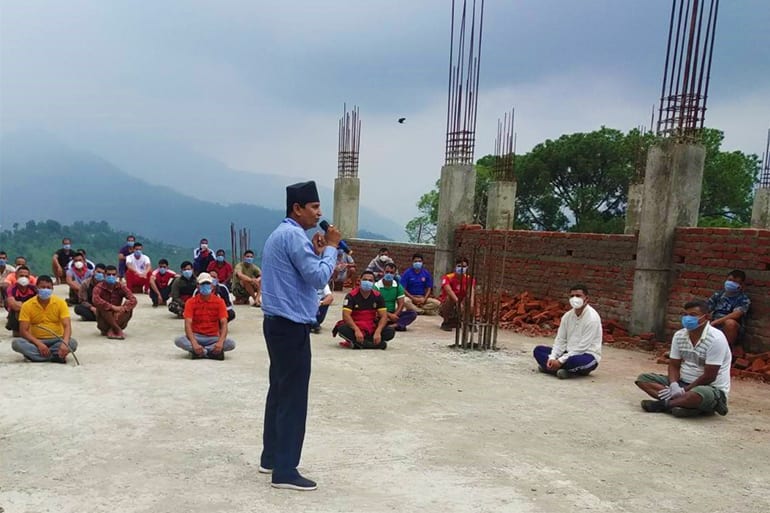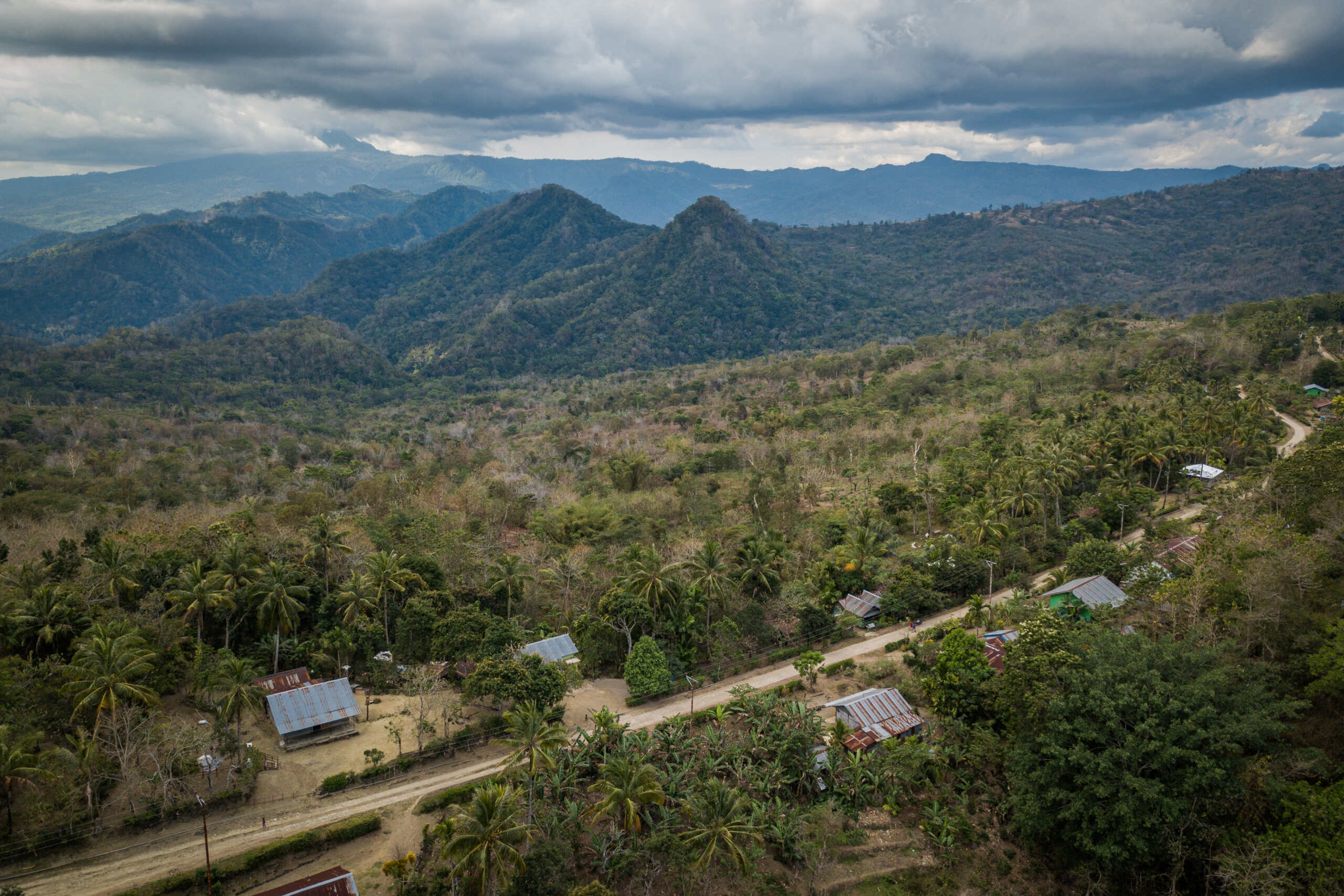Making mental health a priority in Nepal in responding to Covid-19
Stories | January 20, 2022
During times of crises, mental health is often adversely impacted, with increased risks of anxiety and depression. For people living with mental illness, crises can also disrupt routines and access to necessary medicine.
CBM has been working with partner organisations in Nepal to provide immediate mental health support to communities during the Covid-19 pandemic.
Nepal is situated between India and China. It entered lockdown when only a small number of cases was reported in an effort to prevent the healthcare system from becoming overwhelmed. Lockdown periods have been extended multiple times, and during this time, public transport was not permitted – making it difficult for many people to access necessary supplies and stores operated on reduced hours.
CBM has worked hard to assist our partners in pivoting funding towards new concerns brought about by the Covid-19 pandemic. One of the most pressing challenges has been to address mental health concerns and the needs of people living with mental illness.
Responding to mental health concerns within the community has taken a three-stage approach.
1. Building capacity
In the first approach, CBM has worked with the existing services to build the capacity of mental healthcare providers and community workers, as well as the purchase of essential medication for people living with mental illness conditions. The ongoing provision of this medication is necessary to ensure the quality of life of many people living with mental illness – since few people can afford to stockpile these medications during lockdown.
The inclusion of school teachers in mental health training has been a measure to address stress felt by the children in the classroom and via internet teaching platforms. A teacher thanked CBM saying, “We were hopeless and confused what to do ahead but the virtual training gave us new ideas to manage our own and children’s stress and gain new hope during this pandemic”. Through enhanced training, healthcare workers and school teachers have been equipped to address the needs of the community and stress in school students resulting from the pandemic.
2. Developing new services
The second approach has developed new services to address the needs of the community through initiating a series of new projects that include a Covid-19 response team, made up of a psychiatrist, psychologists including a clinical psychologist, and counsellors. Remote services such as tele-mental health counselling and a helpline have also been operationalised. In addition, resources necessary to support these services, including tele-counselling guidelines and a Psychological First Aid manual, have been implemented.
3. Dissemination of information
The third approach has tackled the dissemination of information relating to Covid-19 and mental health. National and local media outlets, radio interviews and public service announcements have enabled the widespread dissemination of information relating to the challenges of mental health concerns and Covid-19 to a broad segment of the community. These broadcasts worked to normalise the discussion of mental health in relation to other topics such as mental health concerns related to gender-based violence and migration, for example.

The impact
So what has been the impacts of these measures? The results so far have been promising. The project utilised ‘check-in’ practices. For example, the project teams have been sharing weekly Skype meetings, involving all members of the central and district teams to keep everyone connected and abreast of the challenges of Covid-19.
Similarly, tele-supervision and coaching via virtual training enabled frontline health workers and teachers to access support and further training. Through this process the resources manuals were developed and tools for healthcare and tele-healthcare providers to address immediate psychological support for people affected by Covid-19. The wellbeing of project staff has not been forgotten and staff have been engaged in a ‘My Wellness’ workshop and a Happiness Challenge.
Seeing the benefits
Testimony from recipients of the variety of project activities have been positive with one saying, “Feeling is the one to make the person ill. Thank you so much for everything you did for me to think positive in my mind”.
The community now has the tools to better tackle mental health. A young father of two reported feeling an uncomfortable burning and tingling sensation throughout his body and was referred to the project. He attended the local clinic to meet with a psychiatrist who diagnosed that he was experiencing symptoms of anxiety related to the spread of Covid-19. The psychiatrist referred the man to a counsellor who provided techniques to cope with his anxiety. He was relived and empowered by finding the source of his stress and grateful for his improvement as a result of the counselling support received.
Now more than ever before, the people we exist to serve are most in need. Join your voice with ours, as we call on decision makers to #EndCOVIDForAll. Sign the pledge here
You can also help by making a donation to our Crisis Appeal. Your donation will go towards a broad range of initiatives that support all our communities to better face the risk of COVID-19.
Learn more about CBM’s COVID-19 Crisis Appeal
Click here to donate to CBM’s COVID-19 Crisis Appeal today
https://www.cbm.org.au/stories/making-mental-health-a-priority-in-nepal-in-responding-to-covid-19
Related Stories

Week 2 – Lent series 2026
As we continue our Lent journey, we’re grateful to share a heartfelt reflection from CBM Australia’s Head of Program Impact Operations, Kieran Cummins, who...

Building inclusive, climate resilient communities in Bangladesh
Highlights from DFAT Post’s visit In January 2026, representatives from the Australian High Commission in...

Week 1 – Lent series 2026
As we enter the season of Lent, we’re taking time as a community to pause, reflect, and draw closer to the heart of God. Lent invites...
